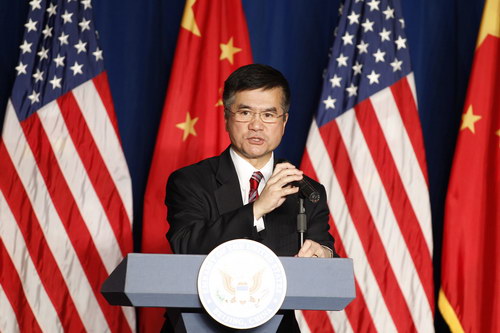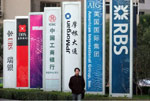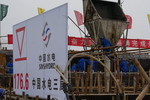Chinese investors 'can help create jobs' in the US
Updated: 2011-09-21 07:48
By Lan Lan and Chen Weihua (China Daily)
|
|||||||||||
|
The new US Ambassador Gary Locke delivering a speech to US business leaders in Beijing on Sept 20, 2011. [Photo/China Daily] |
BEIJING - The US ambassador to China said his top priority is to support President Barack Obama's job-creating efforts by two means: increasing Chinese investment in the United States and expanding American exports.
"Creating more jobs for Americans is the foremost priority of the Obama administration," said Gary Locke, the former US commerce secretary, who took the new post in August.
"We will help Chinese companies and entrepreneurs better understand the benefits and ease of investing in the US by establishing factories, facilities, operations and offices," Locke said in Beijing on Tuesday in a speech to US business leaders.
Chinese companies that invest in the US find it hard to understand tax structures and tax incentives among the 50 states and navigate multiple federal agencies regarding permits and other requirements, Locke said.
The US will make its investment and commercial environment as open and appealing as possible, he said.
Chinese companies seeking to invest in the US still face many barriers, said Wei Jianguo, secretary-general of the China Center for International Economic Exchanges, a top domestic think tank.
"The ambassador highlighted (that) the two sides should strengthen mutual understanding and promote communications and respect among companies, sending a very positive signal," said Wei, who was formerly vice-minister of commerce.
Robert Hormats, the US' under-secretary of state for Economic, Energy and Agricultural Affairs, said the US welcomes Chinese direct investment but is worried about the role of State-owned enterprises.
"We are very welcoming of Chinese investment. (But) we have to figure out the right way of doing it and creating the right environment," Hormats said.
However, only a very few Chinese investments in the US have raised national security issues and are forwarded to the Committee on Foreign Investment in the United States, he said.
The US government is committed to loosening its restrictions on high-technology exports.
The US will make many products easier to export to China and other countries by no longer requiring a license for such exports while also ensuring its national security, Locke said.
At the same time, it is necessary to make it easier for Chinese business people and tourists to get visas to travel to the US for business and leisure, he said.
Obama has also set a target to double US exports by 2015.
A recent US-China Business Council Inc (USCBC) report said that US exports to China grew four times faster in the past decade than its exports to the rest of the world. The overall growth of US exports to China hit 468 percent from 2000 to 2010, averaging 19 percent a year. Over the next year, Locke said he will lead five trade and investment missions to emerging Chinese cities and will focus on high-growth industries such as clean renewable energies, rail, aviation and the information and communication sectors.
Locke said foreign companies still face "substantial restrictions" in entering the Chinese market in sectors such as telecommunications, energy and finance.
"There is a gap between the goals China identified in its five-year plan and the steps it is taking to achieve them," he said.
"The growth model China has relied on for the last 30 years - one predicated on low-cost exports to the rest of the world and investment in resource-intensive heavy manufacturing - cannot serve it well in the next 30 years," he said.
Goals such as expanding domestic consumption and fostering innovation require an acceleration and expansion of the economic reforms China has undertaken in the last few decades, he said.
John Frisbie, president of the USCBC, called Locke's view "very balanced" and said that it's important for the two sides to resolve disputes through dialogue.
Related Stories
Obama to propose 'Buffett Tax' on US millionaires 2011-09-19 08:07
Premier Wen calls for financial stability in US 2011-09-14 13:43
US targets more trade in green energy sector 2011-09-10 09:08
China's success can make US more prosperous: Biden 2011-09-09 14:23
- ICBC Leasing plans major fleet expansion
- Debt crisis may cause more trade friction
- Central SOEs net profits up 13.1% in Jan-Aug
- China's 2011 growth at 9.5%: IMF
- CISA to publish iron ore price index
- Chinese investors 'can help create jobs' in the US
- China's Jan-July gold output rises 2.21%
- ODI makes dramatic rebound amid optimism














